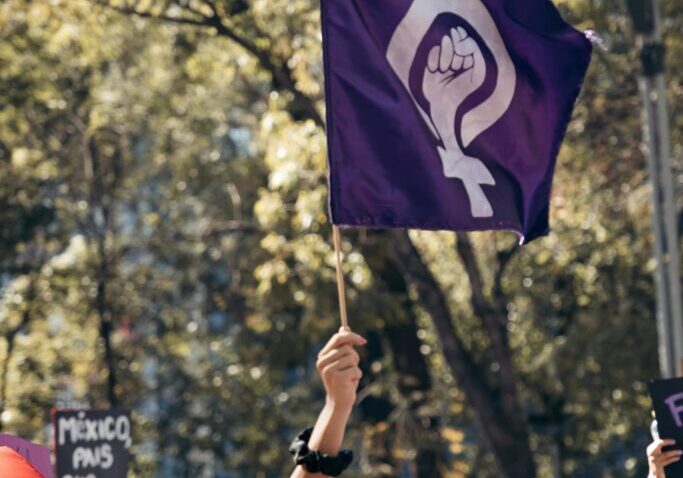Half of Louisiana voters want to see abortion access expanded, according to new polling commissioned by The Advocate, the Urban League of Louisiana and others. The poll found divisions along gender, race, age and political party lines, with older voters and men being most supportive of keeping Louisiana’s current abortion ban. The findings are consistent with another poll conducted last spring where 52% of respondents said abortion should be legal in all or most cases. The Advocate’s Sam Karlin reports:
Michelle Erenberg, president of LIFT Louisiana, an abortion rights group, said the poll confirms what other polls have shown since Roe v. Wade was overturned. LIFT commissioned its own poll this spring from Republican pollster JMC Analytics and Polling that found a majority of Louisianans would support a proposal to establish a right to an abortion in Louisiana. In 2019, before the Supreme Court decision, Louisiana voters approved an amendment saying nothing in the state constitution protects a right to an abortion or funding of an abortion. “Louisiana voters feel that the Legislature has gone too far in limiting reproductive healthcare,” Erenberg said. “It is endangering lives, and not following the will of the people.”
The Shreveport Times’ Greg Hilburn reports on where the candidates for governor stand on the state’s abortion ban.
Louisiana lawmakers recently advanced an income tax credit for controversial crisis pregnancy centers. Sen. Beth Mizell’s Act 437 could cost the state as much as $5 million and makes donations to the highly unregulated industry far more lucrative than gifts to other charities. Stateline’s Anna Claire Vollers reports:
This is because a tax credit allows filers to reduce their taxes owed, as opposed to reducing their taxable income. If you’re a Louisiana resident and you donate $500 to a pregnancy resource center and apply for a state tax credit, you’ll reduce the total amount of state taxes you owe by $250, because the tax credit for that donation is 50% of the donated amount. If you donated that same $500 to any other charitable organization, you’d save yourself just $21.25. This is because your donation would reduce your taxable income by $500, and Louisiana’s top state tax rate is 4.25%.
Pushback on orphan wells proposal
The oil and gas industry is pushing back against a plan to hold companies accountable for leaving abandoned oil and gas wells in the Gulf of Mexico. The Bureau of Ocean Energy Management (BOEM) wants to increase the amount of the surety bonds companies must put down before they can begin drilling. The bonds are used as a form of insurance in the event the company declares bankruptcy and abandons its wells. The Louisiana Illuminator’s Wesley Muller reports on the government’s plan and clears up the misconception that it will lead to job loss:
Healthy Gulf spokesperson Stephannie Kettle said the “job killing” narrative is a played-out claim industry always uses to oppose something they don’t like. Making sure there is money left to plug an old well after it stops producing will actually ensure that workers stay on the job longer through the full lifecycle of the well, she said. “The oil and gas industry loves to threaten jobs unless we let them act with impunity,” Kettle said. “Right now, these companies’ executives cut and run, laying off thousands of workers instead of keeping them employed to use their skills to properly close wells and remove old infrastructure.”
Extreme heat is transforming work
A new Texas law that prevents cities from enacting mandatory water and rest breaks for people who work outdoors will take effect in September, just two months after the hottest period ever recorded on Earth. The Texas law is only the latest skirmish in the upcoming war between unions and corporations over how to protect workers from the effects of a rapidly changing climate. Vox’s Whizy Kim and Kenny Torrella report:
Instead, [Mayra] Reiter’s group [Farmworker Justice], along with a number of unions, are backing a federal bill, recently introduced in the Senate, that would give OSHA a year to issue an interim standard and make it harder to challenge. The bill has won support from a number of Democratic lawmakers. The Coalition of Immokalee Workers (CIW), which advocates for farm workers in Florida and beyond, isn’t waiting on the federal government. In 2011, the group launched the Fair Food Program, which sets stronger labor standards, including heat standards, on farms. So far more than 20 crop growers, along with Burger King, McDonald’s, Whole Foods, Trader Joe’s, and other large food companies, have signed on.
Higher minimum broadband speeds
The Federal Communications Commission hasn’t raised the standard definition for broadband since 2015. But how we use the internet for entertainment, work and other daily needs has vastly changed over the past eight years. Route Fifty’s Chris Teale urges for higher minimum broadband speeds, especially as states receive billions of funds from the bipartisan infrastructure law to expand internet access.
[B]roadbandNow’s editor-in-chief Tyler Cooper warned that building out broadband that cannot cope with current or future demand will not solve connectivity problems in the long-term. “When we set these standards, a lot of people just consider, ‘OK, the government defines it as this, but maybe the free market will innovate and push speeds up regardless,’” he said. “In some cases, that does happen in some markets, but the issue is that we rely on these federal standards to essentially set the pace for the billions of dollars that we’ve spent on broadband deployment efforts, both at the state level and national level.”
Note: Louisiana will get more than $1.3 billion in federal funding to help bring high-speed internet to rural and underserved areas.
Number of the Day
49.5% – Percentage of Louisiana that is in extreme or exceptional drought, the highest percentage since 2015. (Source: National Integrated Drought Information System)
